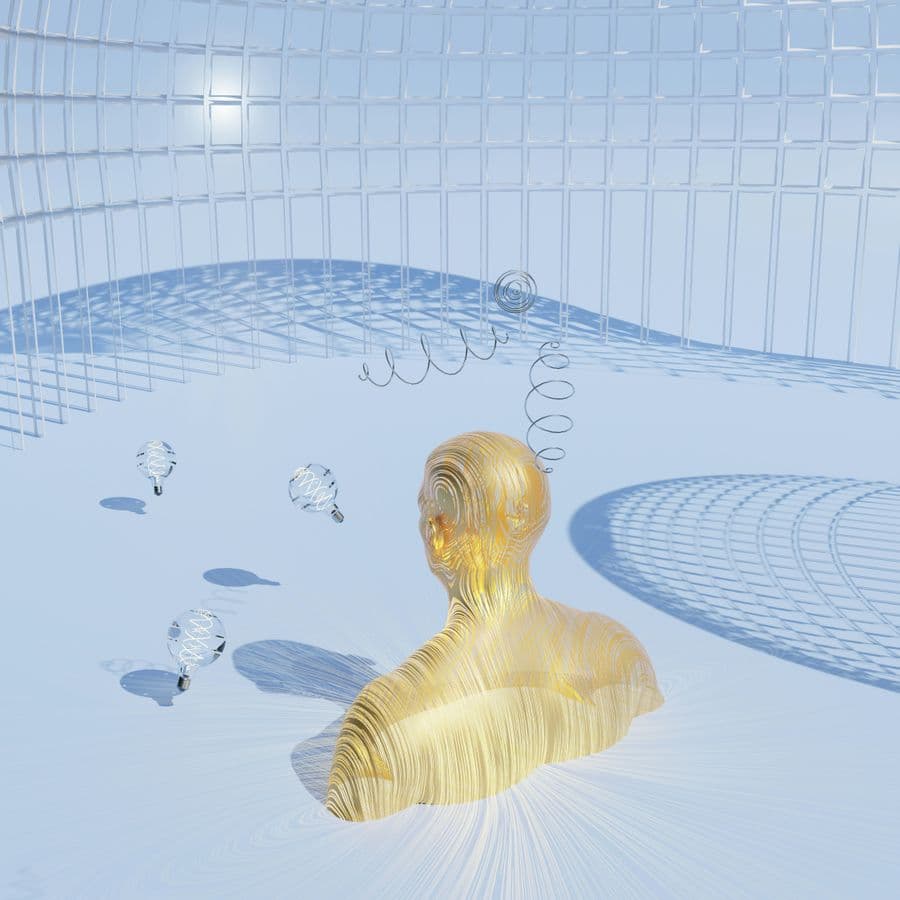
Attention-Deficit/Hyperactivity Disorder (ADHD)
ADHD has undergone a significant transformation, leading to a flood of information and discussions. Amidst this wave, how do we separate fact from fiction, and what are the implications for those living with ADHD?
What is ADHD?
Attention-Deficit/Hyperactivity Disorder (ADHD) is foremostly described as a neurodevelopmental condition that causes ongoing problems with hyperactivity, attention, and impulsive behaviours. Typically starting in childhood and continuing into adulthood, ADHD can affect academics, professional achievements, interpersonal relationships, and daily functioning, particularly concerning sleep and anxiety disorders.
ADHD & Symptoms
Inattention:
Difficulty in sustaining attention
Making unnoticed mistakes in schoolwork/work, or activity requiring attention to detail
Frequently losing items and being forgetful
Avoiding tasks or being unable to stick to tasks
Difficulty organising tasks/activities, leading to poor time management
Being easily distracted by external stimuli or irrelevant thoughts
Forgetfulness regarding daily activities
Hyperactivity and Impulsiveness:
Finding it hard to sit still in calm and quiet surroundings
Often fidgeting or tapping hands/feet
Difficulty concentrating on tasks
Excessive physical activity and talking
Interrupting conversations
The Three Types:
Inattentive Type: Inattentive ADHD is less disruptive but involves easy distraction, missed details, boredom, difficulty following directions, and slow information processing. This often leads to late diagnosis as the symptoms may not fit common expectations.
Hyperactive-Impulsive Type: People with this type of ADHD often fidget and feel impatient, struggle to focus, and have trouble staying seated, waiting their turn, or controlling impulsive behaviors. This can lead to frequent interruptions and difficulties in social and academic settings.
Combined Type: Most people diagnosed with ADHD have a combination of both inattentive and hyperactive/impulsive symptoms. It can present a wide range of challenges, as individuals may struggle with both focusing and controlling their impulses.
Diagnosis of ADHD
It's important to understand that self-diagnosis based on online content is neither reliable nor recommended. For a comprehensive assessment, always seek evaluation from a qualified professional.
Consistency: ADHD symptoms are persistent and occur consistently across various situations. Unlike occasional inattention or impulsivity that everyone might experience, those with ADHD face these symptoms regularly in their daily lives.
Onset Before Age 12: Symptoms of ADHD typically emerge in childhood, often becoming noticeable before the age of 12. Even if diagnosed in adulthood, it's common for individuals with ADHD to have struggled with these symptoms since childhood.
Impact on Daily Functioning: ADHD symptoms can significantly impair daily functioning across various areas of life. From struggling to complete simple tasks and maintain focus at work or school to experiencing challenges in their relationships.
Understanding ADHD:
Despite being one of the most common mental health conditions, there is still no absolute understanding of the exact cause of ADHD.
Brain Structure and Function: Studies have found differences in the brains of individuals with ADHD, but no single cause is clear. Some research suggests reduced gray matter volume, important for speech, decision-making, and muscle control, while others point to low dopamine levels, a neurotransmitter crucial for reward and motivation.
Genetics: Research indicates that genetics is a major factor in ADHD, with twin and family studies showing a high likelihood of the condition if a parent has it. However, no specific gene has been identified, suggesting multiple genes are involved.
Environment: Environmental factors can significantly influence the development of ADHD. For example, prenatal exposure to smoking, alcohol, and drug abuse has been associated with a higher likelihood of children being diagnosed with ADHD.
Debunking The ADHD Myths:
For some people, ADHD symptoms may worsen and become noticeable only in adulthood. As life becomes more complex and expectations increase, support that was available in childhood often changes, making daily life more challenging.
While everyone might experience some ADHD symptoms, those with ADHD face long-term, persistent issues that disrupt daily functioning. ADHD is complex, impacting not only attention and hyperactivity but also organizational skills, time management, task completion, and emotional regulation.
It was once thought that ADHD was more common in boys because girls often went undiagnosed. This was due to girls typically not displaying the 'disruptive' behaviors associated with ADHD, but rather struggling with inattention, disorganization, and poor concentration, which are less noticeable and frequently misunderstood.
The Impact of ADHD:
Sleep: Many people with ADHD experience irregular sleep and wake patterns. Individuals with ADHD often take longer to fall asleep. Poor sleep quality can, in turn, worsen ADHD symptoms by creating a vicious cycle of exhaustion.
Heightened Levels of Anxiety: It is reported that half of the adults living with ADHD experience heightened levels of anxiety or are diagnosed with anxiety disorders. ADHD symptoms can cause a persistent "on-edge" feeling, which fuels anxiety.
Work/Academic-related issues: The high demands, deadlines, time management, and organisational skills expected in most workplaces and academic settings can be particularly challenging. This can lead to significant struggles and underperformance in these areas.
Relationship Problems: ADHD can significantly impact interpersonal relationships. If symptoms are left unattended or if there is a lack of clear communication, it can lead to misunderstandings and conflicts.
ADHD vs. ADD
The term ADD (Attention Deficit Disorder) is outdated and was used for attention problems without hyperactivity. Since May 2013, the DSM-5 uses ADHD (Attention-Deficit/Hyperactivity Disorder) to cover both inattention and hyperactivity/impulsivity. ADHD now includes what was previously called ADD, as well as the combined subtype with both sets of symptoms.
ADHD and Age
Recent research suggests ADHD symptoms do not intensify with age, however, it can fluctuate. It is essential to consider that ADHD is characterised by symptoms of hyperactivity and impulsivity, which are associated with developmental delays caused by differences in brain structure. While ADHD symptoms may improve as individuals grow into adulthood, the underlying structural differences in the brain are unlikely to disappear completely, indicating that ADHD is likely to persist into adulthood. Adults with ADHD may experience changes in the way symptoms manifest, with hyperactivity typically reducing over time. However, other symptoms, such as inattention and impulsivity, may persist and continue to impact daily functioning.
Tips for Daily Management:
Establish a Consistent Routine: Having a predictable routine can provide structure and stability. Try to wake up and go to bed at the same time each day, plan your activities and appointments. Keep a calendar or planner to track your schedule and any changes that occur.
Break Tasks into Manageable Steps: When faced with a large project or tasks, break them down into smaller, more manageable steps. This can help you prevent feeling overwhelmed and make it easier to focus on completing one step at a time.
Seek Feedback: Whether in academic or professional settings, asking for feedback can help you stay on track and ensure that you're meeting expectations. Written feedback can be especially helpful for reference and reassurance.
Take Frequent Breaks: Working on tasks for extended periods can lead to burnout and decreased productivity. Schedule regular breaks throughout the day to rest and recharge. Engage in relaxing activities that you know will soothe your nervous system.
Optimise Your Environment: Pay attention to the environment that helps you stay focused and productive. Experiment with different setups to determine what works best for you. For example, some people may prefer a quiet workspace, while others may find background music or work with a buddy more conducive to concentration.
ADHD Testing & Quizzes:
A few years ago, online quizzes were primarily a source of entertainment, offering fun insights, such as which TV character we most resemble. However, the landscape has changed and today these quizzes are often used for self-diagnosis conditions. While online ADHD quizzes and tests can be useful and motivate individuals to seek professional help, they are not entirely accurate. These tests often oversimplify the diagnostic criteria and do not capture the complexity of ADHD symptoms.
We firmly believe that the gold standard for diagnosing ADHD is consultation with a licenced mental health professional. A professionals can conduct comprehensive assessments, including detailed questionnaires and in-depth interviews, to determine whether symptoms are short- or long-term. This thorough process is critical to differentiate ADHD from other disorders and ensure an accurate diagnosis and appropriate treatment plan.
Treatments for ADHD:
ADHD without medication
Treating ADHD without medication is possible but less universally effective. Medication addresses neurotransmitter deficiencies, a key factor in ADHD, but alternatives like therapy, routines, productivity strategies, and good sleep, nutrition, and exercise can also help. Their effectiveness varies: some may find them sufficient, while others may need a combination with medication.
Therapy and ADHD
Psychoeducational:It offers a supportive space for learning about ADHD and its daily impact, providing education, guidance, and coping strategies. Psychoeducational therapy helps individuals, including children and adults, understand and manage their symptoms, especially those newly diagnosed.
Cognitive Behavioral Therapy (CBT): CBT is a talk therapy that helps individuals, both adults and children, identify and change negative thoughts and behaviors. It provides practical skills and coping strategies for managing ADHD symptoms and is particularly effective for challenges in school, work, relationships, and emotional regulation.
Psychotherapy: Psychotherapy offers a safe space for individuals to explore their feelings about living with ADHD. It helps, especially adults, navigate emotional and interpersonal challenges, gain insight into behavior patterns, develop healthier coping strategies, and improve self-esteem.
Behaviour Therapy: Behaviour therapy is a structured approach aimed at helping children and teenagers with ADHD. It teaches skills to modify behavior and improve self-control, often through setting clear goals, using rewards, and applying positive reinforcement to encourage desired behaviors.
Each of these therapies offers unique benefits and can be tailored to meet your needs and preferences. Working closely with a qualified therapist can help you with ADHD and identify the most effective therapeutic approaches for your specific circumstances. Trust Journey to find your perfect match.












